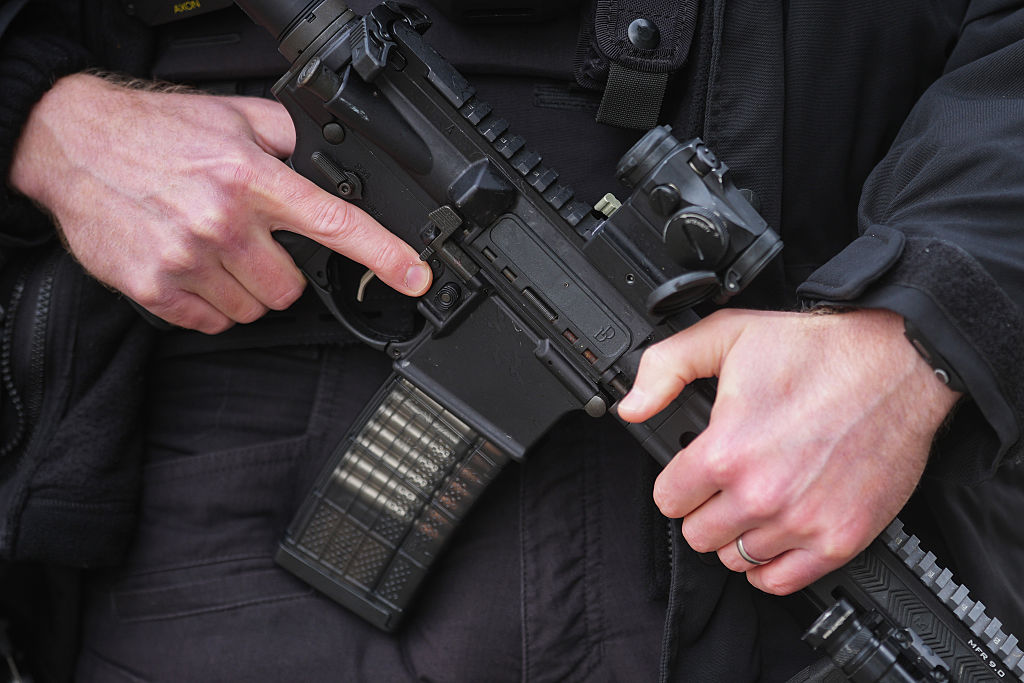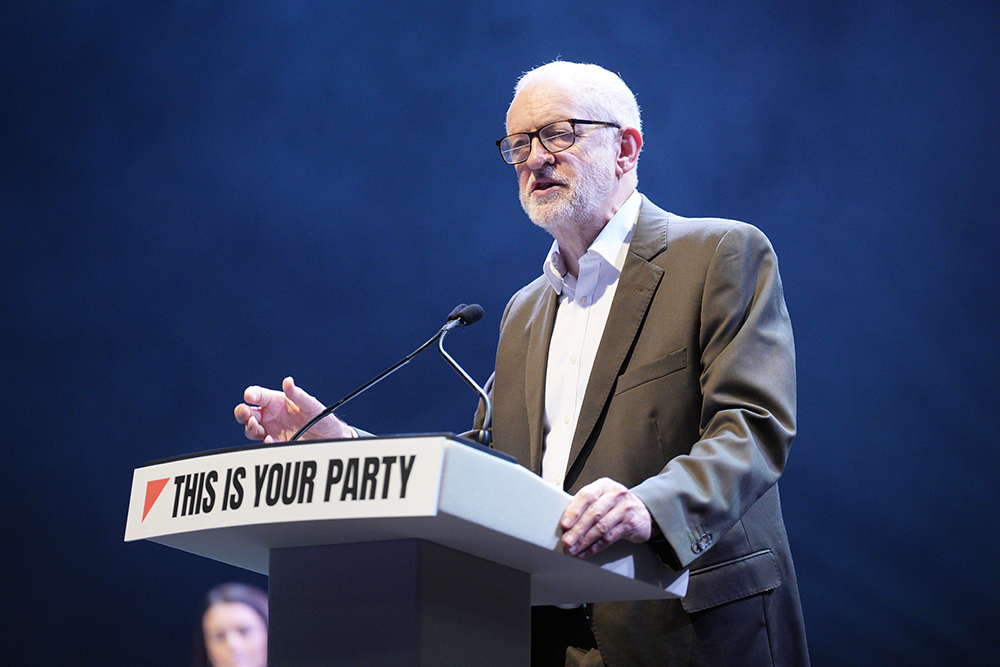‘No case to answer’. Those were the four words that finally ended an outrageously protracted legal and disciplinary case against a police firearms officer who fatally shot a man during an operation targeting a violent organised crime network in north London.
The firearms officer, whose name has not been revealed and is referred to only as W80, had to wait almost a decade to hear the chair of a misconduct panel utter those words. But the case should never have been brought in the first place, and its inevitable outcome is confirmation the police misconduct system needs urgent reform.
The firearms officer, whose name has not been revealed and is referred to only as W80, had to wait almost a decade to hear the chair of a misconduct panel utter, ‘no case to answer’
In December 2015, W80, a specialist counter-terrorism firearms officer with the Metropolitan Police, was deployed as part of a planned operation to stop members of the Tottenham Turks, a heroin trafficking gang, from springing its leader, Izzet Eren, from custody. Eren was being taken in a prison van to Wood Green Crown Court where his associates were lying in wait in a stolen car. Police intelligence said they were armed.
When police officers were ordered to arrest the gang, they approached the vehicle and shouted warnings. W80 opened the front door on the passenger side, where 28-year-old Jermaine Baker was sitting. The officer pointed his gun at Baker and opened fire, hitting him in the neck. It all happened in less than five seconds.
An investigation was launched by the police watchdog, the IPCC, which is now known as the IOPC, the Independent Office for Police Conduct. Five days later, W80 was suspended from duty and arrested on suspicion of murder.
It took 18 months for the Crown Prosecution Service to decide that W80 should not, in fact, face a murder charge, a decision which was internally reviewed and upheld in 2018. But the IOPC then announced that W80 should face a disciplinary hearing for ‘gross misconduct’. The Met did not agree and a lengthy legal tussle ensued about the legal test that should be applied in police misconduct cases. It ended up at the UK Supreme Court, which ruled in the IOPC’s favour in 2023.
By then, however, there had been an exhaustive public inquiry into the shooting, chaired by a former senior judge, Sir Clement Goldstone. The inquiry received 880 witness statements, examined over 65,000 pages of documents and heard 34 days of evidence and legal submissions, including from independent experts in armed policing. In total, it cost almost £4 million. No one who has read Goldstone’s inquiry report could doubt that the process was not thorough, meticulous and fair – while his criticism of the Met was ferocious.
Goldstone identified 24 failings in the way the force had planned and conducted the operation against the Tottenham Turks, and severely criticised two senior officers who had been in charge. ‘This Inquiry should serve as a loud wake-up call,’ he said. But, crucially, no blame was attached to W80.
The inquiry chairman backed the officer’s account that he had opened fire because he believed that Baker was moving his hands towards a bag to reach for a gun: ‘I draw the conclusion, on the balance of probabilities, that the perceived threat from the actions and movement of Mr Baker was such that W80 honestly believed that it was reasonably necessary for him to shoot at Mr Baker.’ (An imitation sub-machine gun was later found in the car used by the gang).
Goldstone said that despite ‘shortcomings’ in W80’s evidence his ‘overall credibility remained largely intact’. He found that Baker had been lawfully killed.
The retired judge’s methodical approach and precisely-worded observations about W80’s conduct and actions ought to have provided the IOPC with a strong steer: drop the disciplinary proceedings against the officer and focus instead on ensuring the Met improves the way it plans and carries out armed operations. In its closing submission to the inquiry, the watchdog had said the ‘chairman’s findings will have authority and be considered with great care’. But instead, the IOPC pressed on with the case against W80.
Its argument, similar to that pursued in the Supreme Court, was that the legal test used to determine W80’s actions in a misconduct setting would be different to that applied in the public inquiry. At the inquiry, W80 had to show only that he ‘honestly’ believed he was in imminent danger when he pulled the trigger. In a misconduct hearing, his ‘honestly held’ belief would have to be judged to be ‘reasonable’, from an objective standpoint, for him to be cleared of gross misconduct.
The distinction between the two tests is a fine one, particularly in this case which had been the subject of such a rigorous inquiry. For a misconduct panel to determine whether or not W80’s belief of ‘imminent danger’ when he shot Baker was ‘reasonable’ or ‘unreasonable’ would have involved scrutiny of the same evidence that the inquiry had spent months poring over to assess whether his belief was honest or not. It is no surprise that the misconduct panel, led by an independent barrister, dismissed the case barely after it had begun.
This cannot happen again. A year ago, the Home Office set up what it said at the time would be a ‘rapid’ review of the legal test for the use of force in police misconduct cases to avoid delays because of different thresholds. It was due to report back to ministers within three months, but the findings are yet to be published. This must now be a priority.
More fundamental change is needed, too, to fix what Sir Mark Rowley, the Met Commissioner, has said is the ‘bureaucratic, slow and broken’ system of police accountability. Strict time limits should be set to speed up inquires and legal hearings after a fatal police shooting; independent firearms specialists should be consulted at an early stage to give an expert assessment of the challenges and risks during the incident under investigation; and the principal objective of any investigation should be on learning and improving, rather than finding an officer to take the rap.
There are occasions when police go against what they have been ordered or trained to do, or when they attempt to cover-up a mistake or wrongdoing. The IOPC is right to pursue officers in such cases. But that never applied to W80. It is shameful that it took ten years for him to be cleared.







Comments